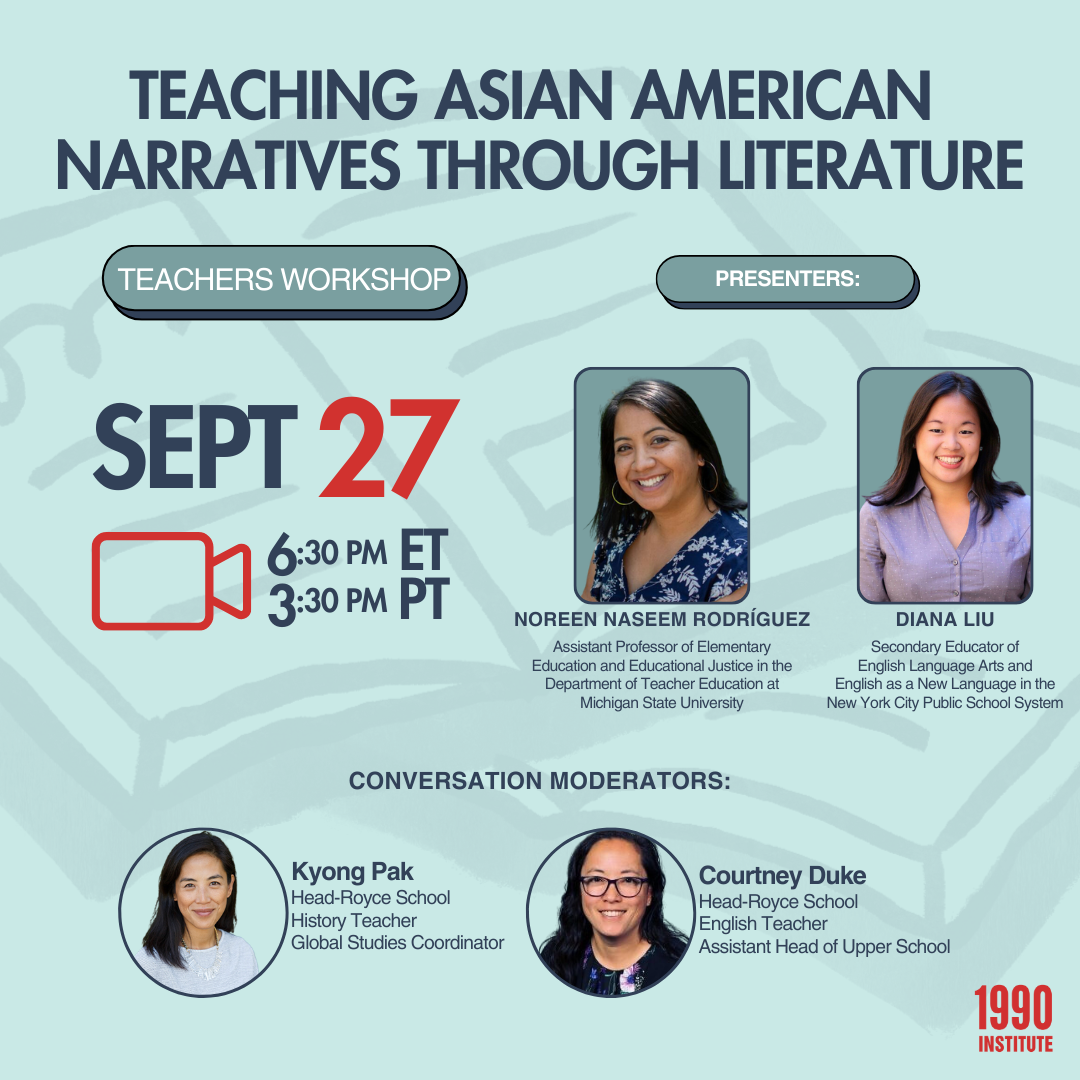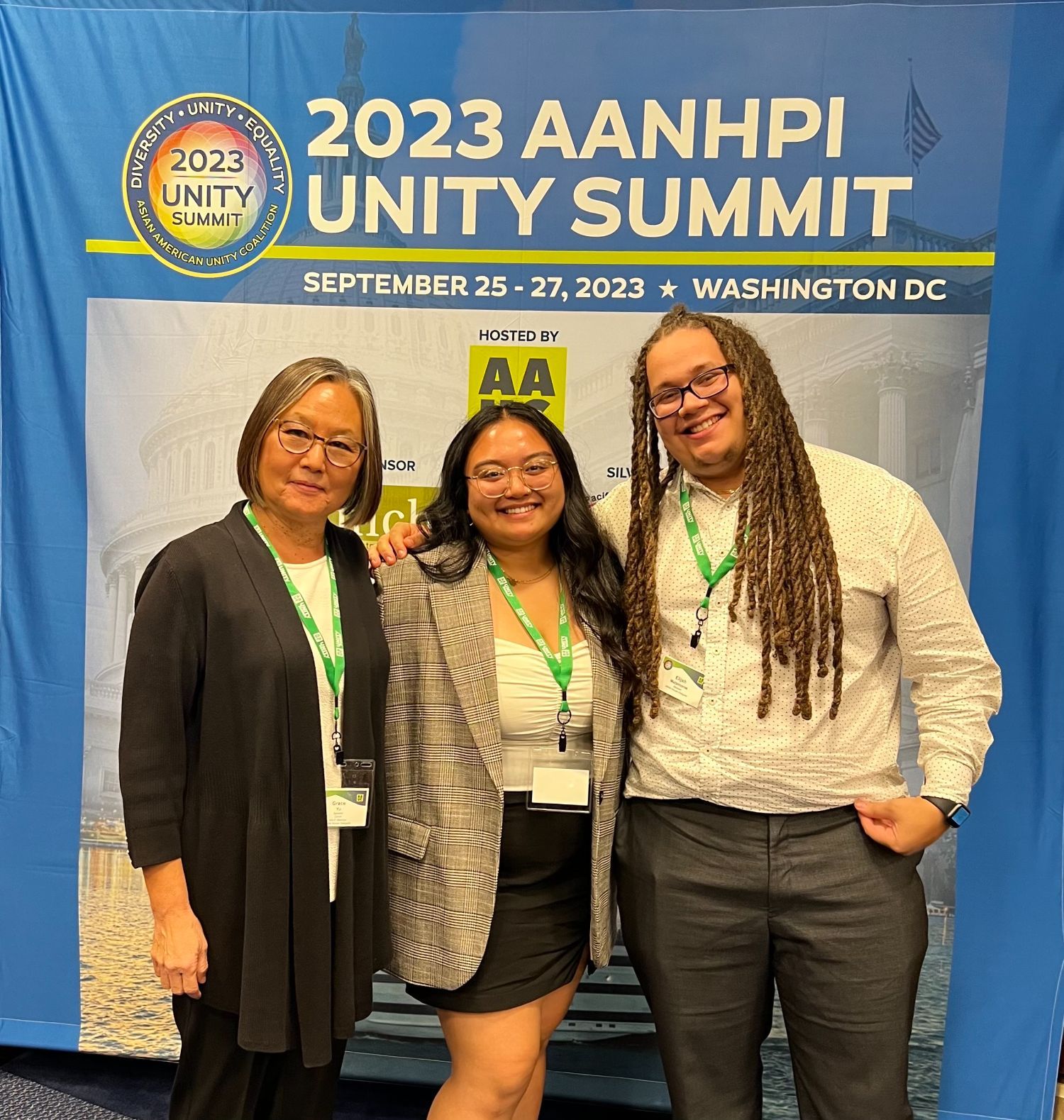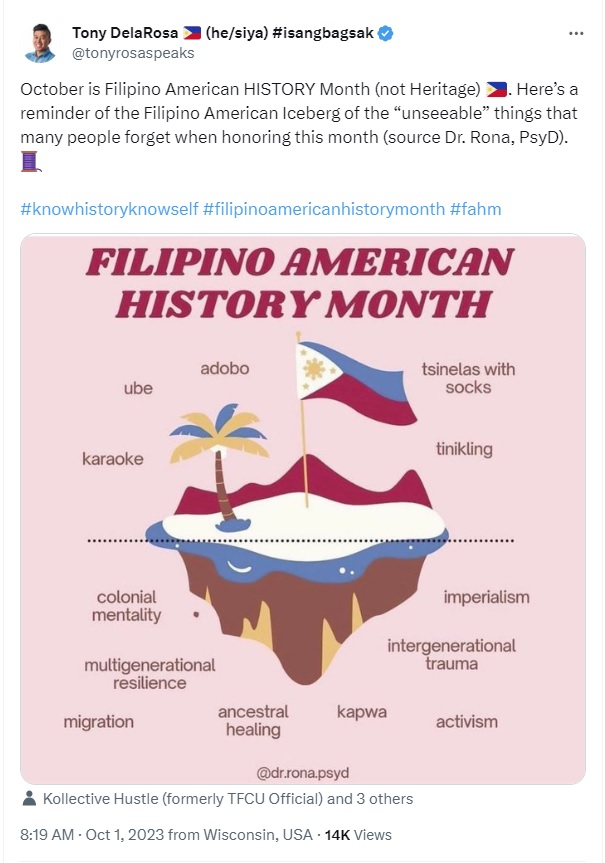| | | | Dear Friends, The 1990 Institute organized our third Teachers Workshop of 2023, “Teaching Asian American Narratives Through Literature,” on September 27. By incorporating a range of viewpoints from different backgrounds and using an interdisciplinary approach, educators discussed how we can deepen students' knowledge of the vibrant cultural tapestry within our communities as well as enrich their understanding of material across their classes. We welcomed registrants from 24 U.S. states and thank all who joined us. In case you missed it or would like to revisit the enlightening conversation, the recording of this event is now available on our YouTube channel. Scroll down to Spotlight for more information and resources. We also have a recap of Board Chair Grace Yu’s participation in a panel discussion at the National Unity Summit last week on the importance of teaching Asian American, Native Hawaiian, and Pacific Islander (AANHPI) history in schools. And if you love the 1990 Institute’s resources and content, please donate to help us continue, and please share this newsletter with your friends and family and encourage them to subscribe. |
| |  |
|
| | | The spirit of the Silk Road continues to connect us By Frances Kai-Hwa Wang
Many years ago, when pipa virtuoso Yang Wei, a member of Yo-Yo Ma’s Silkroad project, came to the University of Michigan as a visiting artist-in-residence, he also visited our elementary school. He talked to the students about the history and evolution of the pipa, and how it is related to both the (European) lute and the (Middle Eastern) oud. He also told funny stories about cultural misunderstandings and how hard English was for him to learn when he first came to America. The kids — many of whom have immigrant parents for whom English is a second language — laughed and laughed when he described how confused he felt when people asked him, “What’s up?” Not understanding the question, he looked up and answered, “Clouds? Sky?” And then he played. From "Oh! Susanna" ("with a pipa on my knee") to classical Chinese songs filled with the sounds of cannons firing, the clash of swords, galloping hooves, and the screams of horses, the kids got it. They heard it all. One man sitting alone on a bare stage with a simple musical instrument held the attention of 450 elementary students, from kindergarten through fifth grade. Yo-Yo Ma’s Silkroad project is a musical project inspired by the historical Silk Road as a model for cultural collaboration and innovation across borders and across differences. The project brings together musicians and musical traditions from the many countries and cultures along the historical route to create a new musical language founded in difference. This year marks the project’s 25th anniversary. Another project inspired by the historical Silk Road is China’s Belt and Road Initiative (BRI), China’s massive foreign policy and infrastructure program, now in its tenth year. The plan was initially the overland Silk Road Economic Belt and the Maritime Silk Road — thus initially referred to as the One Belt, One Road (一带一路) Strategy. China has financed and built power plants, railways, highways, ports, telecommunications infrastructure, fiber-optic cables, and more around the world. Although the Silk Road did not historically reach across the oceans to the Americas, the U.S. and China have been working collaboratively and sharing scientific research for decades. The Science and Technology Agreement (STA) was first signed in 1979 by U.S. President Jimmy Carter and Chinese leader Deng Xiaoping, and it is the longest standing agreement between the U.S. and China. This year was the first time that the STA was not renewed, although a short six-month extension was approved in late August. “The 1990 Institute believes that a decline in collaboration between the U.S. and China will put the future of science and technology innovation at risk. We would encourage leaders to renew the Science and Technology Agreement,” said 1990 Institute Executive Director Susana Liu-Hedberg. “Renewing the STA would help ensure that there remains a pathway forward toward collaboration at the government-to-government level and also at the academic and civil society levels for the sake of global public health and climate change. |
| |
|
|  | The 1990 Institute’s Board Chair Grace Yu participated in a panel discussion on AANHPI education at the National Unity Summit in Washington DC on September 26. The event was organized by the Asian American Unity Coalition (1990 Institute is a member organization). Scroll down to Spotlight to learn more.
Left to right: Grace Yu with panelists Dani Canaleta and Elijah Matamoros from the University of Washington. |
| | |
|
| Biden issues proclamation honoring colleges serving Asian American and Pacific Islanders | NBC News Asian American and Native American Pacific Islander-Serving Institutions (AANAPISIs) make up just over 5% of all colleges and universities but award 40% of bachelor’s degrees attained by such students. Indians surpass Chinese as largest 'Asian-alone' group in U.S. | NBC News Looking to the 2024 elections, experts say the Indian American vote is becoming harder to ignore. According to a new report from the Census Bureau, they have surpassed Chinese Americans who were previously the largest in the “Asian-alone” category, though when the populations are counted with multiracial people included, Chinese Americans still make up the largest share of the country’s Asian population. This Family Owns a Century-Old San Francisco Chinese Restaurant. Now They’re Saying Goodbye | SF Standard Until the pandemic hit, Sam Wo had been a famed destination for hungry late-night guests feasting on Singapore-style stir-fried noodles and the rice porridge known as jook. U.S. releases report looking at federal response to anti-Asian racism | AsAmNews The report assessed three main components: national data on the number of Asian American hate crimes, local and state prevention practices, and federal efforts to establish more transparency over crime-data reporting and legislative strategies to prevent future offenses. WATCH: How a popular NYC restaurant is reimagining Cantonese American food | NYT Cooking Cory Ng and Zhan Chen are on a mission to redefine Cantonese American cuisine. Their restaurant, Potluck Club, is located outside of Chinatown and aims to infuse tradition with a modern twist. 74th anniversary of founding of the People's Republic of China | CNN Commemorations are taking place to mark the 74th anniversary of the People's Republic of China. U.S. warns of Chinese disinformation. China says that’s disinformation | CNN A U.S. State Department report that accuses the Chinese government of expanding disinformation efforts is “in itself disinformation,” said Beijing’s Ministry of Foreign Affairs. China debuts its first overwater high-speed train | CNN The latest addition to the country’s portfolio is a 277-kilometer (172-mile) high-speed train line along the southeastern coast, connecting the cities of Zhangzhou, Xiamen and Fuzhou, all three of which are in Fujian province. Europe’s best-selling Chinese EV maker has a surprising name | MIT Technology Review Even an upper hand in EV technologies doesn't mean Chinese-made cars will succeed in Europe. But one brand has. Desalination system could produce freshwater that is cheaper than tap water | MIT Technology Review MIT engineers and collaborators in China developed a solar-powered device that avoids the salt-clogging issues of other designs. Asian American voters prioritize candidates’ policy positions over their racial identity | Pew Research Center Nearly all Asian American registered voters (97%) say a candidate’s policy positions are more important than their race or ethnicity when deciding whom to vote for. This San Francisco Newspaper Served Asian Americans for Decades. Now Its Archive Is Online | SF Standard More than a decade after it ceased publication, a historic newspaper that focused on Asian Americans has been reborn as a free online source for the community’s history and storytelling. |
| | Thank you to our sponsors for “Teaching Asian American Narratives Through Literature.” Our event supporters encompass educational institutions and community organizations that share a deep commitment to our educational system and recognize the profound influence teachers have in nurturing our youth who are future global citizens. |
|
|
| |
|
| | - RECORDING AVAILABLE: “TEACHING ASIAN AMERICAN NARRATIVES THROUGH LITERATURE” – On September 27, we convened a new Teachers Workshop: “Teaching Asian American Narratives Through Literature.” This webinar covered a brief history of Asian Americans and tracked how diversity in literature has grown over the past decade before diving deeper into how to use literature to spark meaningful conversations on Asian identity, history, and issues, with consideration to the intersectionality of race, ethnicity, gender, and more. Thank you to our panelists, Noreen Naseem Rodriguez, Diana Liu, Kyong Pak, and Courtney Duke, who discussed best practices on how to approach literary works, shared classroom activities, and provided recommended reading lists for all levels, from our youngest readers to adults, and thank you to our sponsors. After you watch the recording, be sure to visit our Reference Library page for this Teachers Workshop and our Teachers Portal for more resources.
- RECAP OF NATIONAL UNITY SUMMIT PANEL WITH 1990 INSTITUTE BOARD CHAIR GRACE YU – Our Board Chair Grace Yu spoke at a panel discussion at the 2023 National Unity Summit, organized by the Asian American Unity Coalition (AAUC) and held in Washington DC from September 25 to 27. The panel addressed the benefits and importance of the Teaching Asian Pacific American History Act, co-sponsored by Rep. Grace Meng (D-NY) and Senator Mazie Hirono (D-HI). Grace Yu discussed why it is important to have such legislation passed at the federal level and also explained the nuances of different versions of Asian American, Native Hawaiian, and Pacific Islander (AANHPI) education bills at the state level. Although Asian Americans are the fastest growing racial ethnic group making up 6% of the U.S. population, Asian American history is largely absent during our formative years, which makes AANHPI students feel they are not represented or seen. If this bill is passed, it signals to everyone that AANHPI history – layered, nuanced, sometimes painful but often inspiring – is American history and should be taught in our schools. Education is the best defense and offense to break down harmful stereotypes and tamper the rise of hate and violence. The 1990 Institute equips educators with materials and resources to take back to their classrooms to help them create cross-cultural understanding. If you would like to support the 1990 Institute so we may continue our work, please go here, join us here, or contact us to learn more.
- WINNER ANNOUNCED: MAHJONG GIVEAWAY – In conjunction with the launch of our educational video titled “Beyond the Tiles: Making Connections Through Mahjong” – which covered the history of mahjong and its appeal as a unifying force among diverse groups today – and to support educators using mahjong to teach math, we held a giveaway of a set of mahjong tiles this summer. We are pleased to congratulate the winner: Emily Smith, a fourth grade teacher at Douglas Road Elementary School in Lambertville, Michigan. Mahjong can be a fun and educational tool for reinforcing math skills and she has begun to use this mahjong set in her classroom. We will be posting photos of these lessons in action. Stay tuned and use the social media links at the bottom of every newsletter to follow us so you don’t miss anything.
|
| | Dim Sum - A Little Bit of Heart |
|  | |
|
|
|
| | | | 1990 Institute
P.O. Box 383 | San Francisco, California 94104
contact@1990institute.org www.1990institute.org Copyright 2023 The 1990 Institute. All rights reserved. |
| | | |
|
| |
|
|